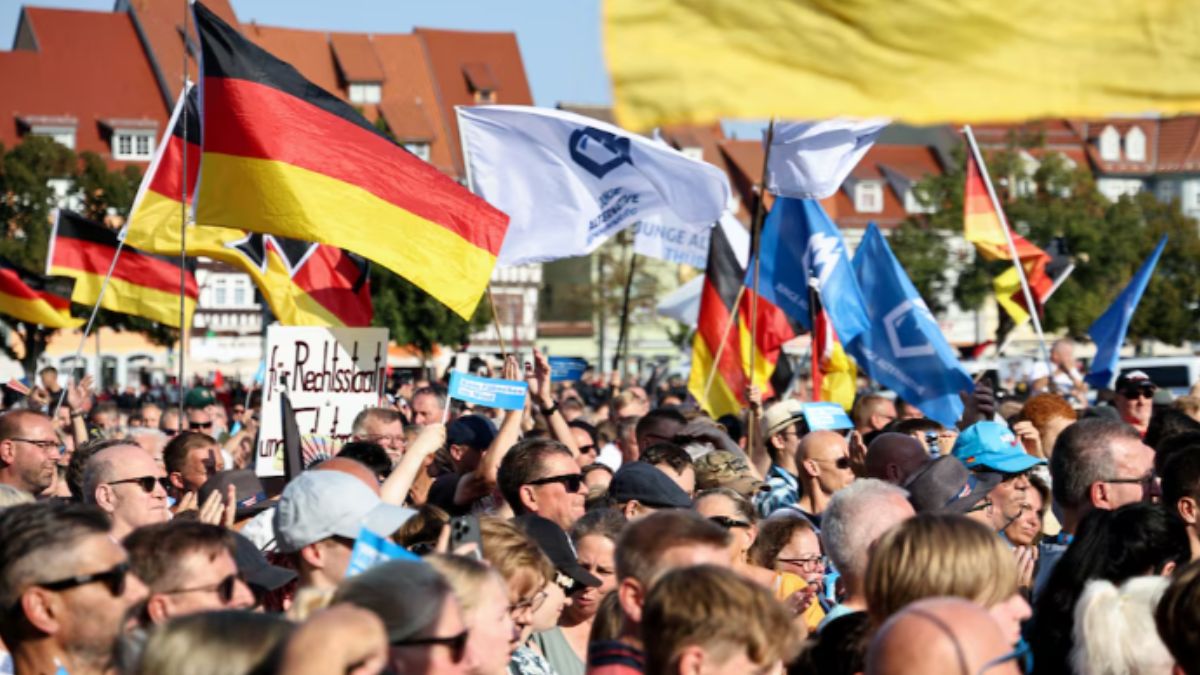Days ahead of federal elections in Germany, a report suggested that Russian bots have driven a dramatic surge of disinformation on various social media platforms, especially X, formerly known as Twitter. According to a report of the German Office of Foreign Affairs, obtained by Politico, at the centre of the efforts to influence voters is Doppelgänger, a Kremlin-backed operation.
As per the report, the Russian campaign uses fake news sites, sleeper accounts, and AI-generated content to spread false narratives and erode trust in Western institutions. In the past, intelligence agencies across the EU and the US have previously tracked Doppelgänger’s highly coordinated tactics. Usually, the campaign sought to undermine the support for Ukraine in the ongoing war in Russia. But now the focus has been shifted to the German election which is scheduled to take place on February 23.
The report stated that German officials have identified more than 100 pseudo-news websites which have been quietly accumulating provocative and misleading content for months. “These platforms are structured similarly, filled with generic, often AI-generated articles,” one official, who was involved in the making of the report told Politico, on the condition of anonymity.
“At a chosen moment, a fabricated story is inserted and then rapidly spread via social media and influencers. We must assume these sites were prepared to be activated in the run-up to the Bundestag election," the official added.
What do these Russian bots do?
The German officials said that these sleeper websites usually mimic legitimate news outlets and remain inactive until a politically sensitive moment. When these moments take the social media by storm they begin publishing false stories that eventually spread through their coordinated social media networks.
In recent years, European authorities have often blamed Moscow for election interference in several elections. In the past, Czech and Belgian authorities busted a major influence network they said was spreading pro-Kremlin propaganda in the runup to last year’s European Parliament polls. Russia was also accused of influencing Romanian presidential elections in December last year, which was cancelled after Romanian security services warned that Russia was mounting “aggressive” hybrid attacks.
The German election is also not free from the influence, since the people are concerned about the rise of the Russia-friendly, Elon Musk-backed far-right party Alternative for Germany (AfD). The far-right party, known for its radical ideologies is currently running second in the opinion polls.
Impact Shorts
More ShortsBots tend to make ghost accounts of major news outlet
Previously, Doppelgänger-linked websites have cloned outlets like Der Spiegel, altering domain names just slightly to deceive unsuspecting readers. The report stated that there has been a sharp increase in posts from ghost accounts, with activity spiking beyond 3,000 posts in a single day in late January. In comparison to this, for much of November and December, activity remained relatively low, rarely exceeding 50 posts a day.
The authorities stated that coordinated disinformation posts started to appear on social networking sites at a much larger frequency. The report said, “This overload technique — flooding social media with rapid waves of posts to manufacture the illusion of viral traction — is characteristic of Russian disinformation campaigns.”
The authorities also stated that the contents of the post followed a clear pattern. These posts often targeted Germany’s support for Ukraine, claiming that Berlin is prioritizing Kyiv over its own citizens. One such example documented in the report was a post which described a fabricated corruption scandal involving Economy Minister Robert Habeck and an unnamed “Ukrainian Culture Minister.”
As per the report, the false story was planted on a sleeper website in January and was later amplified within hours by numerous X accounts. It was also found that the wave of election interference appeared to be heavily automated with several fake accounts posting at the same intervals.
In light of this report, German officials said that they are stepping up their counter-disinformation efforts, sharing intelligence with international partners, and considering sanctions and public attribution of the networks behind the campaign.
With inputs from agencies.


)

)
)
)
)
)
)
)
)



